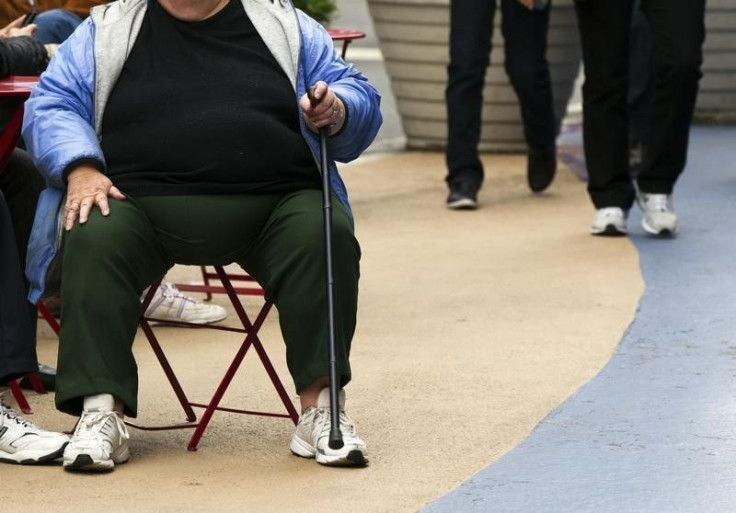U.S. Task Force Advises Blood Sugar Tests For Overweight Adults

(Reuters Health) – The U.S. Preventive Services Task Force (USPSTF) now recommends blood sugar testing for all overweight adults ages 40 to 70 even if they don’t have symptoms of diabetes.
Those with high blood sugar but not diabetes should be sent for intensive behavioral counseling to promote a healthy diet and exercise that may delay or prevent the disease, the Task Force says.
In 2008, the government-backed USPSTF endorsed diabetes screening for people with high blood pressure but couldn’t find enough evidence to support the same screening for those who are overweight but with no symptoms of diabetes.
Since then, six studies found that lifestyle changes to prevent or delay diabetes are consistently beneficial, say the authors of the new recommendation, published in the Annals of Internal Medicine.
“Any test a primary care physician would do on a healthy person can have both potentially beneficial and potentially harmful outcomes,” said Task Force member Dr. Michael P. Pignone of the University of North Carolina, Chapel Hill.
“Because of that, it’s important to focus on screening tests that we know, on balance, are effective,” Pignone told Reuters Health by email. “The Task Force found screening adults ages 40 to 70 who are overweight or obese can identify individuals with abnormal blood glucose levels before it progresses to diabetes and that offering or referring them to intensive lifestyle interventions can help prevent or delay complications from the disease.”
The USPSTF can’t say at this point how often blood sugar screening should occur, although computer calculations suggest that testing every three years is reasonable, he said.
Almost 40 percent of U.S. adults have abnormal blood sugar levels that increase diabetes risk, he said. The National Institutes of Health, the American Heart Association and the Centers for Disease Control and Prevention also recommend behavioral counseling on diet and exercise for these people, he said.
Some groups may be at increased risk for diabetes even if they’re not overweight, Pignone said, such as younger people with a family history of diabetes, women who had diabetes while pregnant or who have polycystic ovarian syndrome, and certain racial or ethnic minorities including African Americans, Alaska Natives, American Indians, Asian Americans, Hispanics or Latinos, or Native Hawaiians and Pacific Islanders.
“What is new here are the studies that demonstrate lifestyle intervention can prevent or delay the progression to diabetes,” said Dr. Shelley Selph of Oregon Health and Science University in Portland, lead author of a review on the topic for the USPSTF in June of 2015.
“This recommendation is important because obesity, a major risk factor for diabetes, is common and having uncontrolled diabetes increases one’s risk of illness and death,” Selph told Reuters Health by email. “If we can prevent or delay progression to diabetes, through eating a healthy diet and increasing our physical activity, the implication is that there will be a reduced risk of cardiovascular disease and death.”
“The American Diabetes Association recommends screening people with multiple risk factors regardless of age,” and every patient has unique factors that encourage or discourage diabetes screening, Selph said. “Ideally, the physician and patient work together to determine the appropriateness of screening.”
Doctors typically recommend weight loss through eating a healthy diet and getting regular exercise for their patients who are overweight, Selph said.
“The decision to refer to intensive behavioral counseling is likely dependent on the availability of local resources and the physician’s familiarity with those resources,” she said.
SOURCE: http://bit.ly/1i46lF7 Annals of Internal Medicine, October 26, 2015.



























